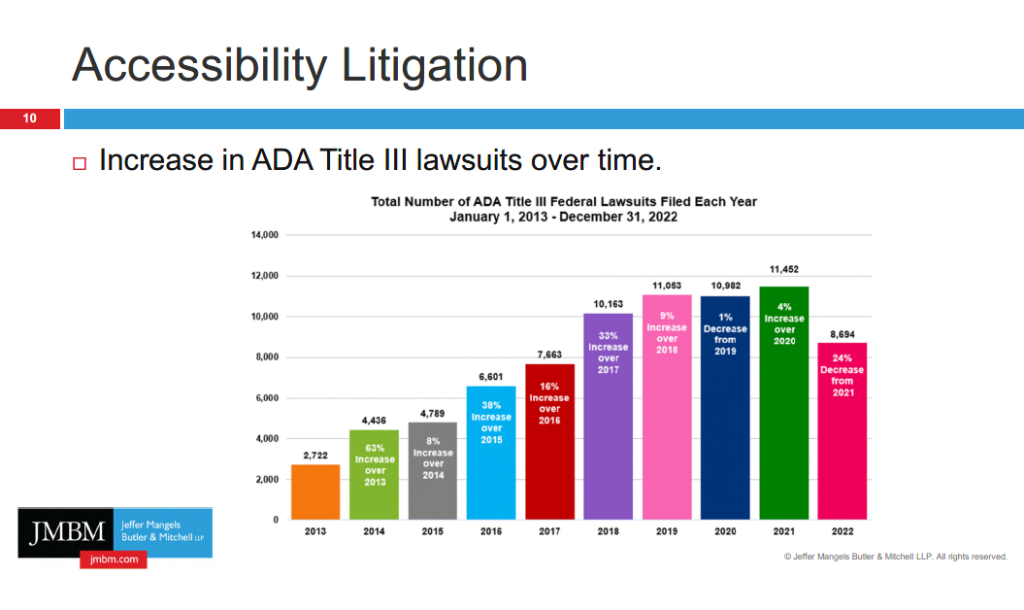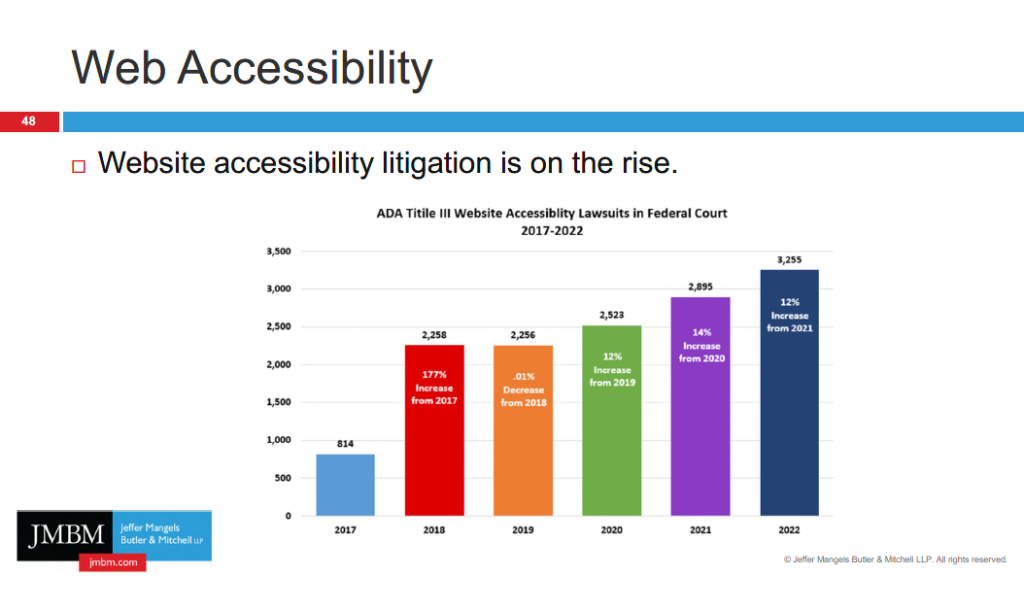25 February 2024
See how JMBM’s Global Hospitality Group® can help you.
Click here for the latest articles on ADA Compliance and Defense.
Last year, JMBM secured a legal victory for our client Zarco Hotels after they were accused of ADA violations by a serial plaintiff. Our strategic approach led to a dismissal of the claims and compensation awarded for legal fees. In the article below, JMBM partner Stuart Tubis examines the case details and outlines the practical steps businesses can take to defend themselves against meritless lawsuits.
JMBM wins second ADA lawsuit for Zarco Hotels,
bringing total defense awards to $113K
by
Stuart Tubis, JMBM’s ADA Compliance & Defense Group
Recently, JMBM reported that it successfully defended a website accessibility lawsuit on behalf of its client Zarco Hotels, against serial plaintiff Traci Morgan. In that case, the court awarded Zarco Hotels $55,414.84 in compensation for its attorneys’ fees and costs.
JMBM and Zarco Hotels have prevailed again. On July 11, 2023, a different court awarded Zarco Hotels attorneys’ fees and costs related to a separate ADA lawsuit regarding hotel reservations.
Garcia v. Zarco Hotels, Inc., Case No. 21STCV00023 (Superior Court of California, County of Los Angeles) involved claims by serial plaintiff Orlando Garcia, who has filed hundreds of similar lawsuits against businesses in California. The same law firm, Potter Handy, LLP (AKA Center for Disability Access) represented Morgan and Garcia in both cases.
Garcia alleged that the Hollywood Hotel’s reservation requirements did not comply with the ADA because the website did not provide enough information about the physical accessibility features of the hotel. See our article on this issue here: ADA Requires Hotels To Describe Accessibility Features On Website.
However, Garcia failed to recognize that the Hollywood Hotel’s website and reservation system exceed compliance with the ADA; JMBM’s ADA Compliance and Defense team, led by Stuart K. Tubis, Esq. and Martin Orlick Esq. showed that it provides more information than the law requires about ADA accommodations at the hotel. Still, Garcia refused to dismiss the lawsuit, despite evidence showing that the claims lacked merit.
In our practice, we find that ADA plaintiffs will often press forward with lawsuits, even when they lack merit. This is likely because many defendants find it easier to settle the case and pay the plaintiff rather than defend themselves in court.
Zarco Hotels was not intimidated, and filed its motion for summary judgment on July 15, 2022. Facing a losing battle, Garcia finally dismissed the lawsuit on October 6, 2022. CONTINUE READING →






 Stuart K. Tubis is a partner attorney at Jeffer Mangels Butler & Mitchell LLP and a member of JMBM’s ADA Compliance & Defense Group. Stu counsels businesses and landlords on the full spectrum of ADA compliance issues and represents their interests in litigation and Department of Justice investigations. He has a background in technology, which helps in resolving the growing area of website accessibility issues. Contact Stuart K. Tubis at 415.984.9622 or
Stuart K. Tubis is a partner attorney at Jeffer Mangels Butler & Mitchell LLP and a member of JMBM’s ADA Compliance & Defense Group. Stu counsels businesses and landlords on the full spectrum of ADA compliance issues and represents their interests in litigation and Department of Justice investigations. He has a background in technology, which helps in resolving the growing area of website accessibility issues. Contact Stuart K. Tubis at 415.984.9622 or  This is
This is